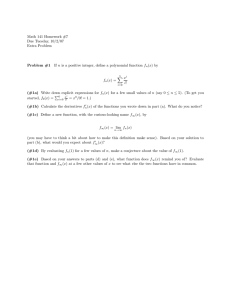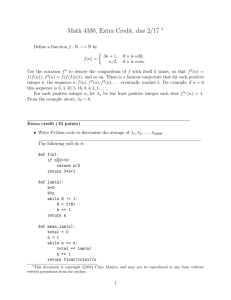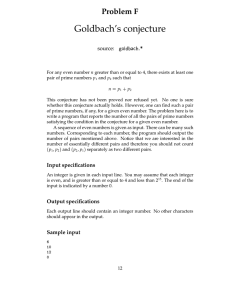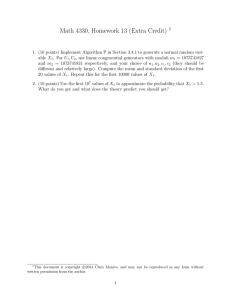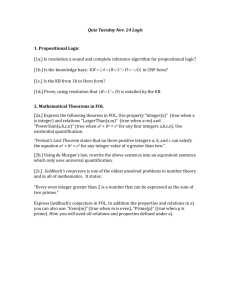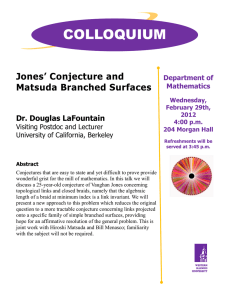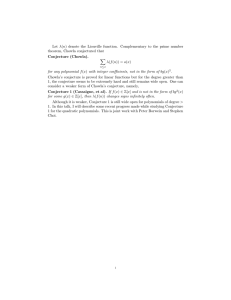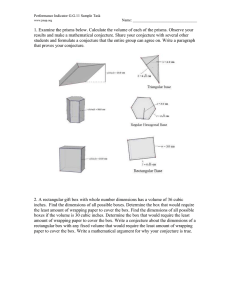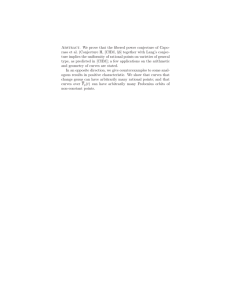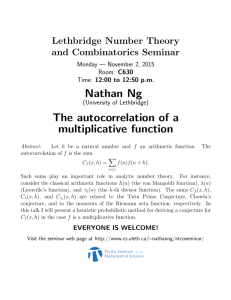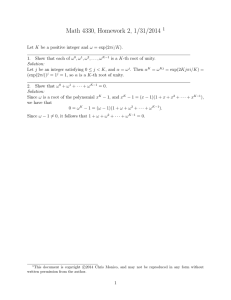Math 4330, Extra Credit, due 2/17
advertisement
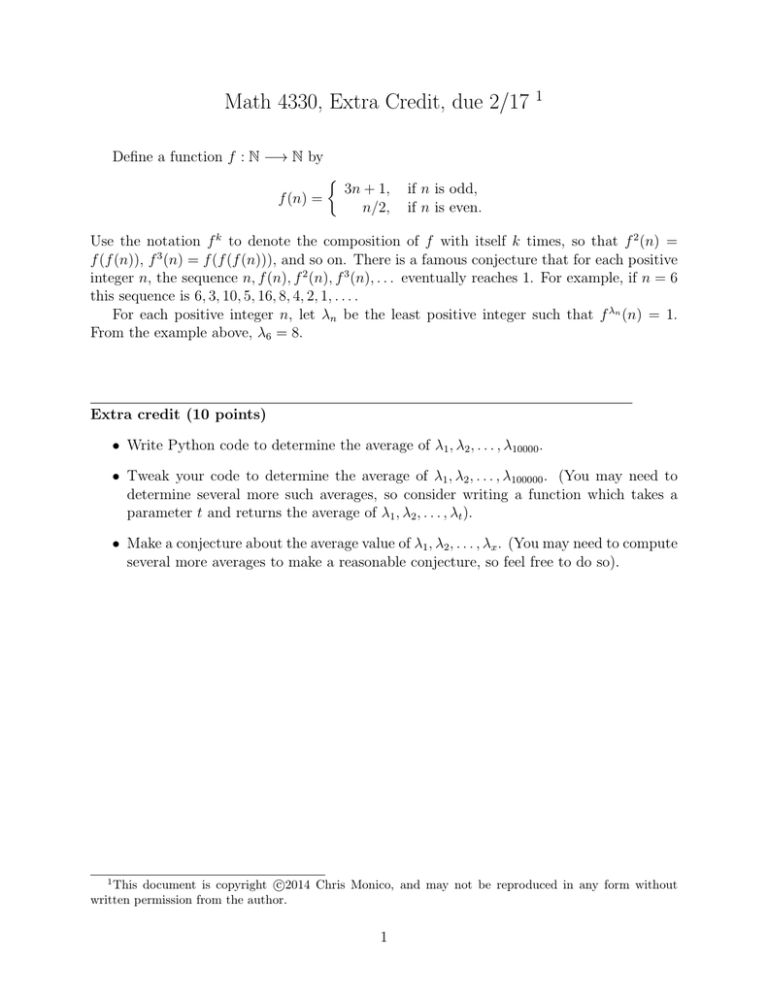
Math 4330, Extra Credit, due 2/17 1 Define a function f : N −→ N by f (n) = 3n + 1, n/2, if n is odd, if n is even. Use the notation f k to denote the composition of f with itself k times, so that f 2 (n) = f (f (n)), f 3 (n) = f (f (f (n))), and so on. There is a famous conjecture that for each positive integer n, the sequence n, f (n), f 2 (n), f 3 (n), . . . eventually reaches 1. For example, if n = 6 this sequence is 6, 3, 10, 5, 16, 8, 4, 2, 1, . . . . For each positive integer n, let λn be the least positive integer such that f λn (n) = 1. From the example above, λ6 = 8. Extra credit (10 points) • Write Python code to determine the average of λ1 , λ2 , . . . , λ10000 . • Tweak your code to determine the average of λ1 , λ2 , . . . , λ100000 . (You may need to determine several more such averages, so consider writing a function which takes a parameter t and returns the average of λ1 , λ2 , . . . , λt ). • Make a conjecture about the average value of λ1 , λ2 , . . . , λx . (You may need to compute several more averages to make a reasonable conjecture, so feel free to do so). 1 c This document is copyright 2014 Chris Monico, and may not be reproduced in any form without written permission from the author. 1
